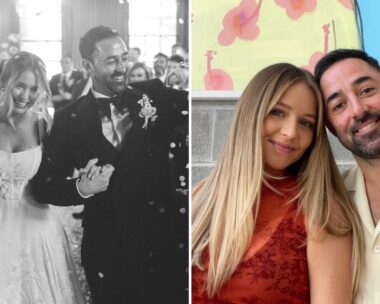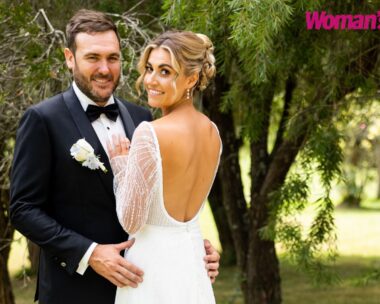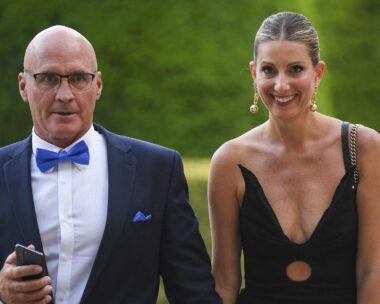Tracy Grimshaw put her life on hold to nurse her dying mum. Eighteen months on, she tells Michael Sheather her grief is so intense, she is considering therapy.
Tracy Grimshaw’s life changed irrevocably the day her mother Barbara died. Tracy, the host of television’s A Current Affair, stood by Barbara throughout a gruelling nine-month battle with lung cancer.
Yet nine months was nowhere near enough time to prepare Tracy for the overwhelming loss and grief that swept over her when the end finally came and that still reverberate today.
“I somehow expected that, after 18 months, it would get easier,” says Tracy, 52.
“It doesn’t get easier at all. I miss her. I still want to pick up the phone and hear her voice. I haven’t stopped wishing she was still here or that I could reach out and touch her.
Barbara Grimshaw was 76 when she died, a feisty, down-to-earth, intelligent woman, attributes she shared with her daughter. But she did have one vice. Like many who grew up in the post-war era, Barbara was a smoker. She gave up when she was 50, it came back to haunt her.
The diagnosis was cancer. Fortunately, Tracy was on her summer break when her mother got sick. She was able to be with her mother every day as she began the gruelling rounds of chemotherapy and recovery that lasted for the next three months. Barbara moved in with Tracy, who eventually did a course in palliative home care, learning to administer the morphine and other drugs her mother needed to keep her pain-free and comfortable.
When Barbara died in Tracy’s home on September 7, 2011, one day short of the nine months that doctors predicted she might survive after diagnosis, Tracy was there and so was her brother.
Tracy says she is grateful for the time she managed to have with her mother before her death, but she is still trying to cope with the fact that “there is a lot that I wish I had been able to say”.
“The truth is, you can never say enough. When you lose someone who you love so much you regret all the things you didn’t say for the rest of your life.
“I still think that perhaps I didn’t tell her often enough that I loved her. Maybe I didn’t tell her how much I truly admired her. But a part of me also knows that she knew those things.”
Tracy says losing her mother has made her more vulnerable and more compassionate. A strong woman, like her mother, it’s also made her realise that those vulnerabilities are ok.
“I think society expects people to be pragmatic when, as an adult, you lose a parent,” she says.
“But I don’t think you can be. At least, I can’t be. If parents lose their children, then that is an acknowledged tragedy because it is not part of the cycle of life and rightly so.
“I think people should be okay to be decimated by something like this. It doesn’t mean you’re weak.”
Read more of this story in the April issue of The Australian Women’s Weekly.





